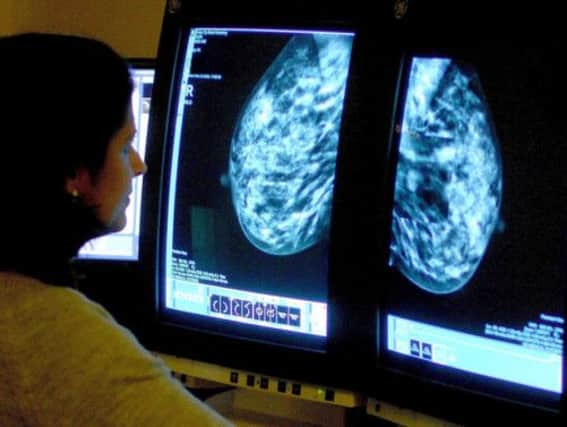We are still a long way from beating breast cancer


Sarah has said that it was like three jumbo jets crashing every month. Every month. Sarah is one of Breakthrough Breast Cancers’ trustees and has metastatic breast cancer. That’s when breast cancer spreads to other parts of the body. She was referring to the number of women and men in the UK who die from breast cancer every month.
You often see stories that we are “beating” breast cancer, that breakthroughs in understanding are coming all the time. And whilst this is true, it doesn’t take away from the fact that we aren’t yet close to stopping breast cancer taking away the lives of those we love.
Advertisement
Hide AdAdvertisement
Hide AdAnd that’s why we have looked long and hard at what needs to be done and have resolved to do so much more. Many charities are struggling to keep going as donations become harder to find. But we simply cannot wait. We cannot accept that there is nothing more we can do to address the cancer that affects more women than any other in Scotland. A cancer that is set to affect 60,000 women a year across the UK by 2030.
Everyone touched by breast cancer tells us that their fears are that breast cancer may not be treatable when it’s diagnosed, that it may spread and ultimately they will die. But we can do something about this.
We need to work to prevent most breast cancers. We know that there are drugs available today that are effective in preventing breast cancer before it has even started.
Indeed, we recently saw the decision in Scotland to approve the use of tamoxifen as a preventative measure for women at higher risk of developing breast cancer.
But preventative drugs won’t provide all the answers. More than 4 out of ten breast cancers could be prevented if women adopted healthier lifestyles. Now we need to understand how and take action to help this change happen.
We need to increase the pace and precision of early detection of breast cancer. Techniques to identify early stage breast cancer are limited. We believe we are only a short way from being able to tell the difference between early breast cancers that need treatment and those that don’t.
We also know that women themselves play a vital part in early detection. Being breast aware – as highlighted by the Scottish Government’s recent “Detect Cancer Early” Campaign – will help ensure we can use early detection tools and technologies can be applied to their best effect.
We need to develop more effective treatments for primary breast cancers. While it’s true that more women are now being successfully treated than ever before we need to do better. For example, there are still no targeted treatments for the “triple-negative” form of the disease which affects 10-15 per cent of women with breast cancer. And the needs of the 400 or so men in the UK are often overlooked.
Advertisement
Hide AdAdvertisement
Hide AdWe need to know more about metastatic breast cancer. All deaths from breast cancer are caused by the metastatic form of the disease. Most women and men reach a point where further treatment is no longer possible.
Breakthrough aims to bring metastatic breast cancer out of the shadows, providing new hope for those with the disease. By investing in new ways to identify those at risk of their cancer coming back and new treatments to stop the cancer spreading when it does we will increase survival.
But we can’t do any of this without greater efforts to unite those affected by breast cancer to help us to work against it. Breast cancer research is not over-funded.
Far from it, we have identified work in the areas of prevention, early detection and improving treatments for all forms of the disease that needs to be funded now.
That’s why we last week held a reception at the Scottish Parliament to talk more about the challenges ahead in addressing the increasing incidence of breast cancer. By bringing together those affected with those addressing the disease every day we can start to make the progress we need.
Sarah hates what cancer has done to her and her family. Her wish is that other women don’t have to face what she has, that they don’t have to die from breast cancer. By creating a powerful voice for breast cancer we believe we can make this a reality.
• James Jopling is director for Scotland at Breakthrough Breast Cancer, www.breakthrough.org.uk/scotland